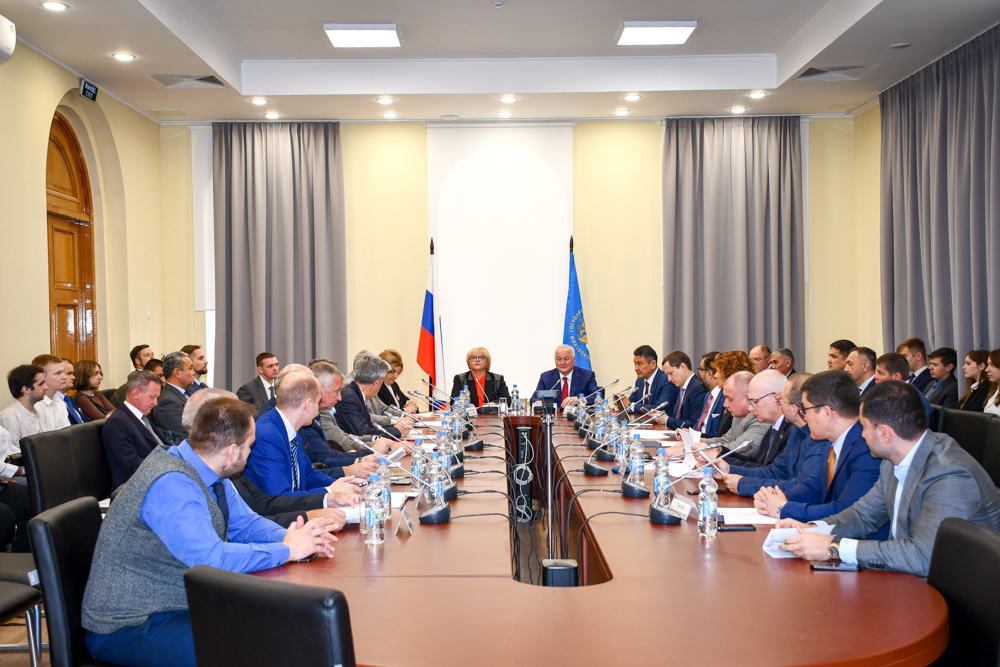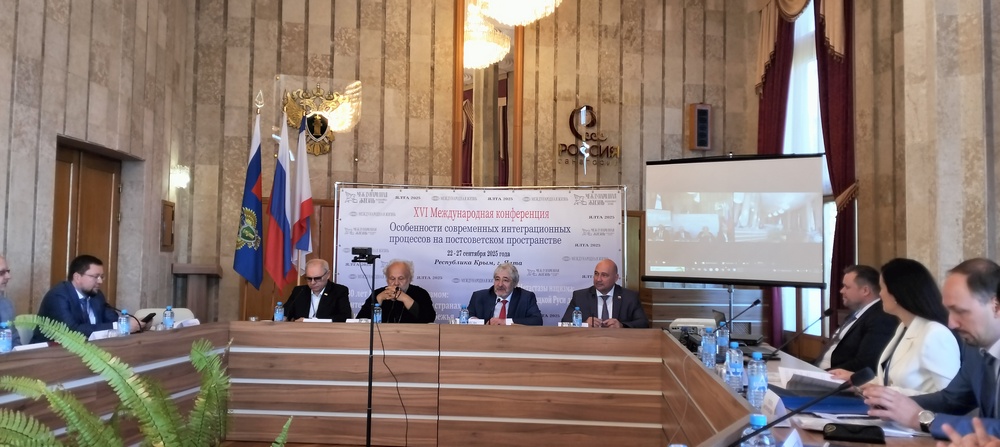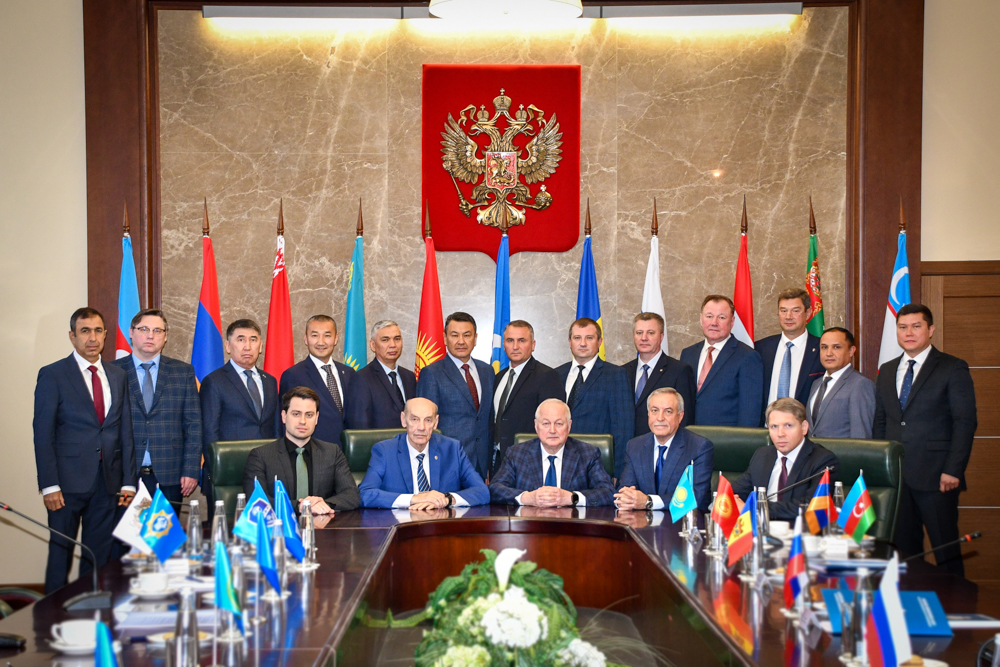September 4, 2024

The CIS Conference on Combating Terrorism and Extremism and SCO RATS Scientific-Practical Conference were jointly commenced for the first time ever in Tashkent, Republic of Uzbekistan on September 4, 2024.
The event was co-organized by the State Security Service of the Republic of Uzbekistan, CIS Anti-Terrorism Center and SCO Regional Anti-Terrorism Structure.
The Conference including a plenary meeting and five thematic sessions will be attended by the delegations:
competent authorities of 20 CIS member-states and SCO member-states (Azerbaijan Republic, Republic of Armenia, Republic of Belarus, Republic of India, Islamic Republic of Iran, Republic of Kazakhstan, People’s Republic of China, Kyrgyz Republic, Islamic Republic of Pakistan, Russian Federation, Republic of Tajikistan, Turkmenistan, Republic of Uzbekistan), observer states at SCO (Afghanistan, Mongolia) and SCO dialogue partners (Arab Republic of Egypt, State of Qatar, United Arab Emirates, Kingdom of Saudi Arabia, Republic of Türkiye);
working structures of 9 CIS bodies (Executive Committee, Inter-Parliamentary Assembly, Council of the Commanders of Border Troops, Coordinating Council of the Prosecutor Generals, Council of the Defense Ministers, Council of the Interior Ministers, Council of the Heads of Financial Intelligence Units, Council of the Heads of Custom Services, Anti-Terrorism Center);
working structures of 2 CIS bodies (Secretariat and Executive Committee of the Regional Anti-Terrorism Structure);
10 authorized agencies of 6 international organizations (UN Office of Counter-Terrorism, Executive Committee of the UN Security Council Counter-Terrorism Committee, Analytical Support and Sanctions Monitoring Team of the UN Security Council, Regional Center of Preventive Diplomacy for Central Asia, Regional office of the UN Office on Drugs and Crime for Central Asia, General Secretariat of the International Criminal Police Organization – INTERPOL, Secretariat of the Conference on Interaction and Confidence Building Measures in Asia, International Committee of Red Cross, Eurasian Group on Combating Money Laundering and Financing of Terrorism, Central Asian Regional Information and Coordination Center for Combating Illicit Trafficking in Narcotic Drugs, Psychotropic Substances and their Precursors);
22 scientific-research and educational organizations, including higher educational institutions of the competent authorities of the CIS and SCO states led by their rectors who for the first time have gathered in such a composition.
The Plenary meeting featured a statement of the Chair of the State Security Service of the Republic of Uzbekistan, CIS Deputy Secretary-General, SCO Deputy Secretary-General, Under Secretary-General, Head of UN Office of Counter-Terrorism, Director of the SCO RATS Executive Committee and Head of CIS ATC.
While assessing the contemporary challenges and threats, the speakers noted that the situation in the area of countering terrorism remained highly tense amid the intensifying geopolitical struggle and the use of terrorist methods in it, relentless regional conflicts and noticeably worsened old contradictions. Terrorism remains one of the most dangerous problems of our society requiring a strong stand and coordinated efforts of the entire international community, they stressed.
On the first day of the Conference the participants of the three sessions exchanged their assessment of the main threats to the collective and national security and gave forecast of their development, as well as the practices of countering terrorism and extremism;
noted a steady trend of increasing radicalization of the population, especially young people, caused by the continuing activity of terrorist ideologists in the information space and the use of modern information and telecommunications technologies by international terrorist organizations;
identified the need for further development of interstate measures aimed at countering the fusion of transnational crime and international terrorist organizations, intensifying international cooperation in the fight on drug trafficking, smuggling of weapons, ammunition and technical means used for terrorist purposes, and stressed the importance of coordinated actions to prevent the use of migration channels for the movement of persons involved in the terrorist and extremist activities;
focused on the need to employ the capacity of inter-parliamentary structures to further improve the legal framework for multilateral cooperation in the field of countering terrorism and extremism, as well as the development of international rules of conduct in the information sphere;
reviewed topical issues of international counter-terrorism cooperation, assessed the state and efficiency of response mechanisms to emerging modern challenges, confirmed a firm commitment to further strengthening professional cooperation, and emphasized the need to use joint capacities in developing comprehensive counter-terrorism measures with the leading role of the UN in coordinating efforts to combat terrorism;
discussed measures to improve scientific and educational support for activities to combat terrorism and extremism, exchanged practices in organizing educational, methodological and research work, by noting among the promising areas of training the development and implementation of educational programs in the field of cyberterrorism, the creation of methodological centers in national educational organizations for the exchange of experience and best practices, and the study of the effectiveness of approaches to the rehabilitation and re- ocialization of individuals who participated in terrorist and extremist activities.
The fourth and fifth sessions of the Conference (September 5) will be devoted to discussions of the cooperation in countering:
financing of terrorism, including the implementation of joint programs and projects aimed at increasing the efficiency of monitoring financial flows and identifying suspicious transactions, the development of databases on the platforms of the CIS ATC and the SCO RATS on terrorist organizations and individuals involved in the financing of terrorism;
extremist ideas actively disseminated with use of information and communication technologies, including the use of artificial intelligence technologies to monitor and analyze extremist content on social networks and the Internet, and counteract radicalization in virtual space.
Recognizing the scale and nature of modern security challenges and threats and the need to increase joint efforts to counter terrorism and extremism, the participants note the important role of the Conference for further developing international counter-terrorism cooperation and strengthening trust between the CIS and SCO countries.























































